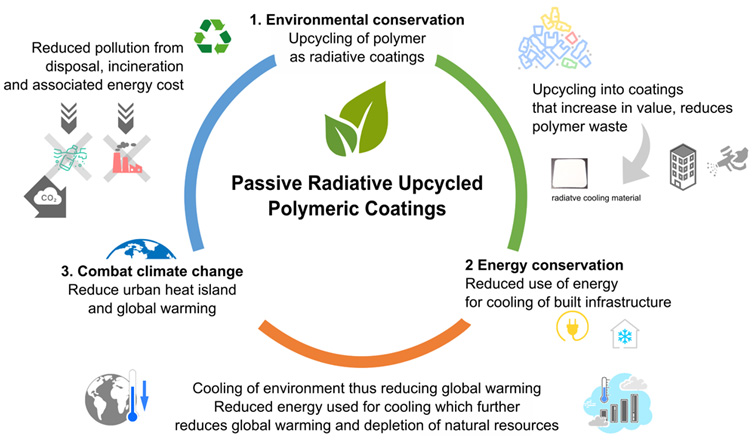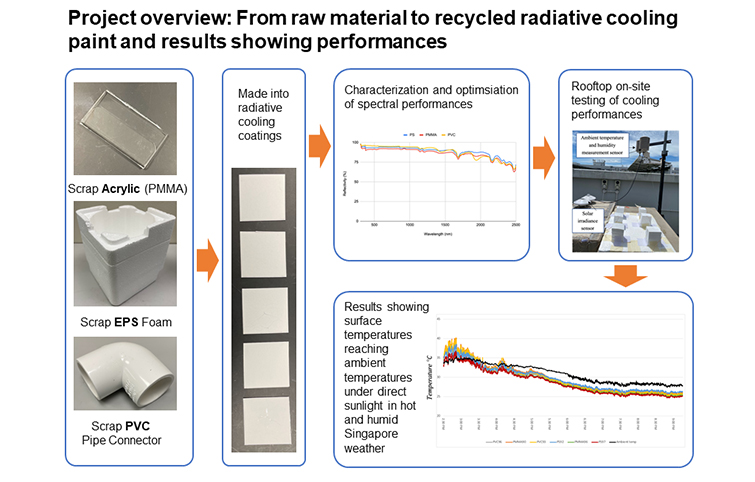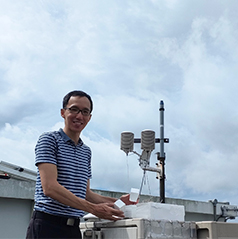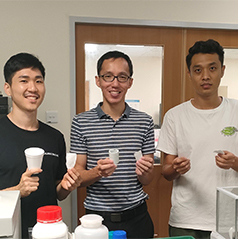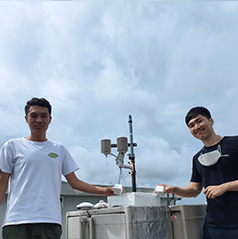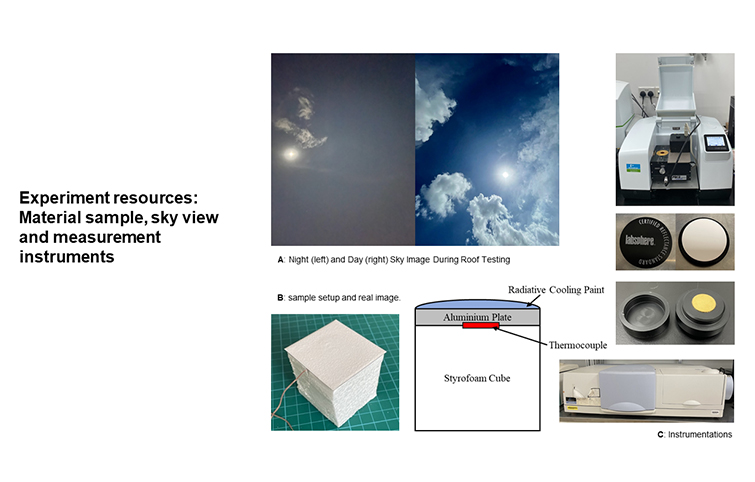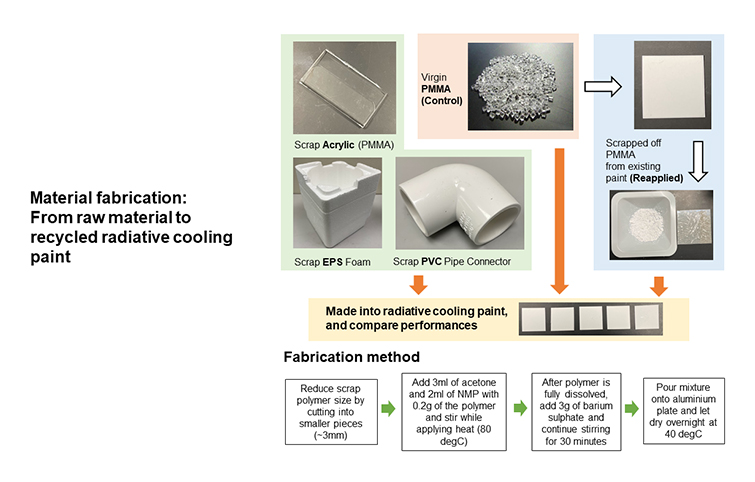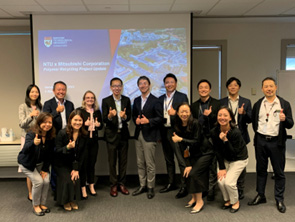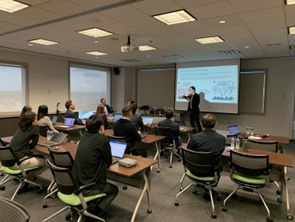Research Project on Passive Radiative Cooling through upcycle of polymer waste
Research Project on Passive Radiative Cooling through upcycle of polymer waste
As part of Mitsubishi Corporation’s corporate philanthropy program to conserve the environment, a partnership with Nanyang Technological University, Singapore was established for a S$60,000 research project on “Passive Radiative Cooling through upcycling of polymer waste”.
The novelty of the project lies in developing recycled polymers into radiative cooling materials that can significantly lower surface temperatures of terrestrial objects. Radiative cooling relies on the emission of thermal energy (within the atmospheric window wavelength of 8-13 µm) to the outer space (ultimate heat sink) to reduce surface temperatures. Accompanied with reflection of solar radiation, materials exhibiting the combined properties are able to enhance cooling and even reach sub-ambient temperatures.
Through Mitsubishi Corporation’s support, NTU successfully developed and demonstrated that temperatures of the upcycled polymer surfaces can reach ambient temperatures under the hot and direct sunlight in Singapore. This lowering of surface temperatures can potentially help to mitigate urban heat island effect in lowering temperatures in the macroscale, potentially cooling down a city, reducing energy demands and global warming. The use of waste not only has direct impact on reducing and reusing polymeric materials, their conversion into radiative cooling coatings also upcycles them into products of higher value. The reduction of polymer waste further contributes to environmental conservation by reducing pollution and global warming from landfill and incineration, respectively.
The funding from Mitsubishi Corporation has brought forth environmental conservation alongside the push for energy saving solutions for climate change.
